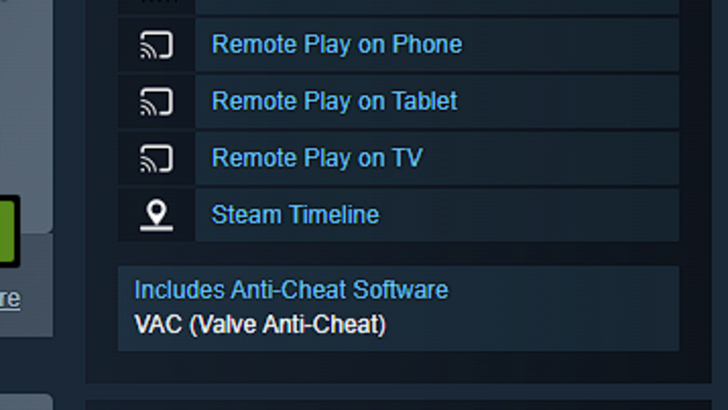Steam's New Anti-Cheat Disclosure: A Step Towards Transparency?
 Steam has implemented a new requirement for developers: disclosing whether their games utilize kernel-mode anti-cheat. This move aims to enhance transparency and address player concerns surrounding the controversial technology.
Steam has implemented a new requirement for developers: disclosing whether their games utilize kernel-mode anti-cheat. This move aims to enhance transparency and address player concerns surrounding the controversial technology.
Valve's Enhanced Anti-Cheat Disclosure
 Via a Steamworks API update, developers can now specify their game's anti-cheat implementation on their store pages. While disclosure for non-kernel-based systems remains optional, kernel-mode anti-cheat usage is now mandatory. This addresses growing player anxieties about the potential invasiveness of such systems.
Via a Steamworks API update, developers can now specify their game's anti-cheat implementation on their store pages. While disclosure for non-kernel-based systems remains optional, kernel-mode anti-cheat usage is now mandatory. This addresses growing player anxieties about the potential invasiveness of such systems.
Kernel-mode anti-cheat operates at a low system level, directly examining processes on a player's machine. This differs from traditional methods that analyze in-game activity. The increased scrutiny stems from concerns about performance impacts, security vulnerabilities, and privacy implications.
 Valve's decision reflects feedback from both developers seeking clearer communication channels and players demanding greater transparency regarding anti-cheat software and installations. The company's statement emphasizes their commitment to addressing these concerns.
Valve's decision reflects feedback from both developers seeking clearer communication channels and players demanding greater transparency regarding anti-cheat software and installations. The company's statement emphasizes their commitment to addressing these concerns.
 The update simplifies information sharing for developers and provides players with more informed choices.
The update simplifies information sharing for developers and provides players with more informed choices.
Mixed Community Reception
 Launched on October 31st, 2024, at 3:09 a.m. CST, the feature is already live. Counter-Strike 2's page now clearly displays its use of Valve Anti-Cheat (VAC).
Launched on October 31st, 2024, at 3:09 a.m. CST, the feature is already live. Counter-Strike 2's page now clearly displays its use of Valve Anti-Cheat (VAC).
While many applaud Valve's pro-consumer approach, some criticisms have emerged. Minor issues like grammatical inconsistencies and the phrasing used to describe older games requiring updates have been noted.
 Practical questions remain, such as handling language translations and defining "client-side kernel-mode" anti-cheat, particularly concerning solutions like PunkBuster. Debate continues regarding the inherent invasiveness of kernel-mode anti-cheat.
Practical questions remain, such as handling language translations and defining "client-side kernel-mode" anti-cheat, particularly concerning solutions like PunkBuster. Debate continues regarding the inherent invasiveness of kernel-mode anti-cheat.
Despite initial mixed reactions, Valve's commitment to consumer protection is evident, highlighted by their transparency regarding recent California legislation combating deceptive digital goods advertising. Whether this new feature fully addresses concerns about kernel-mode anti-cheat remains to be seen.



















